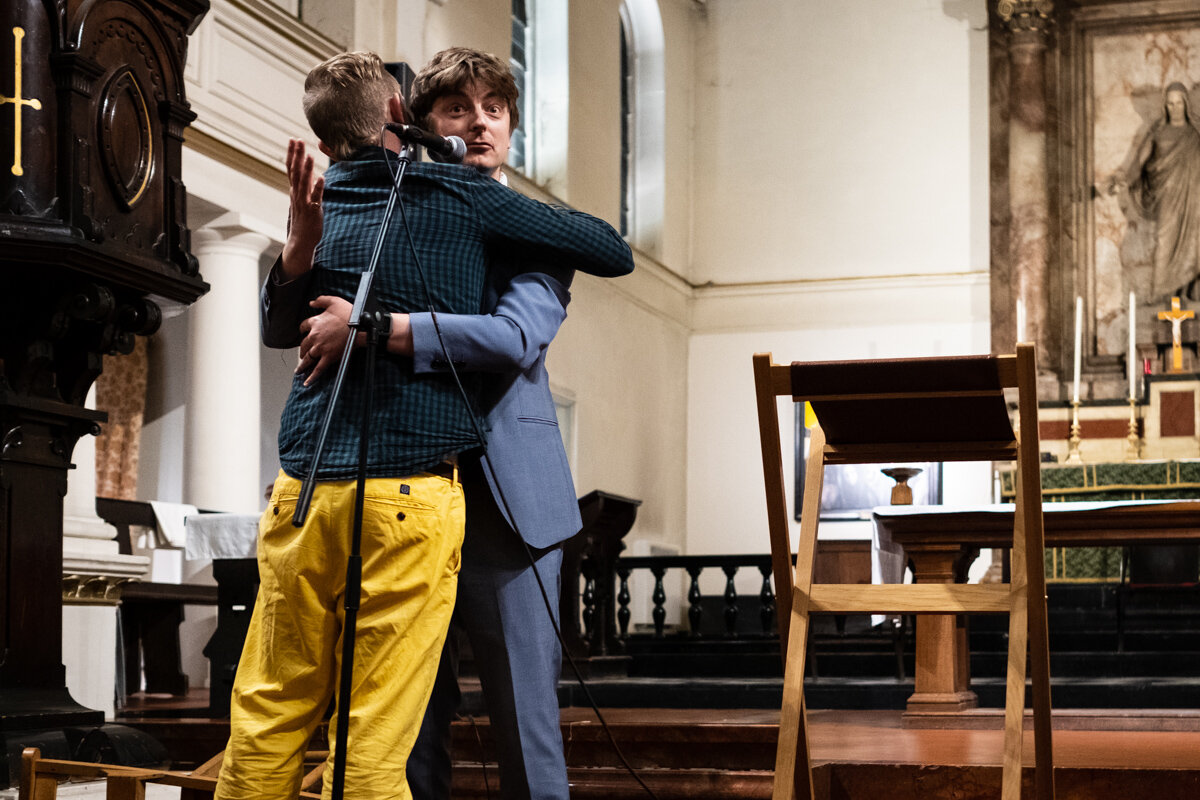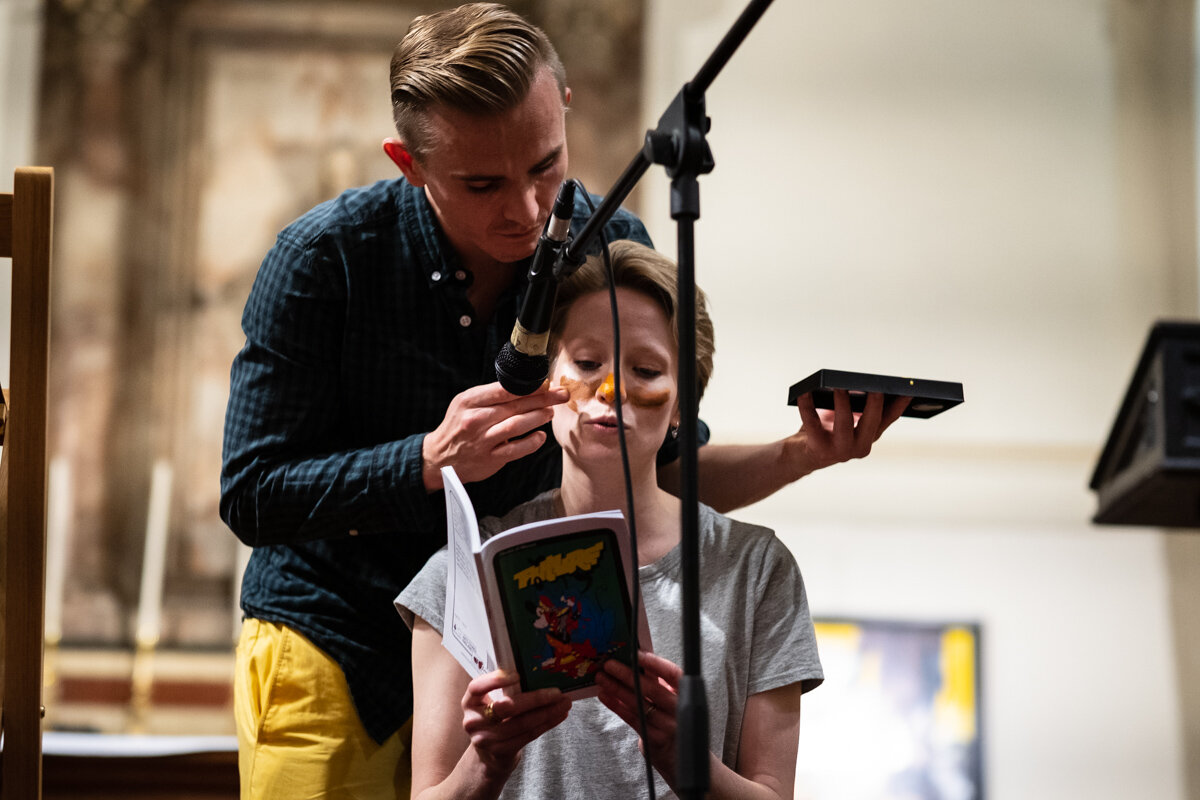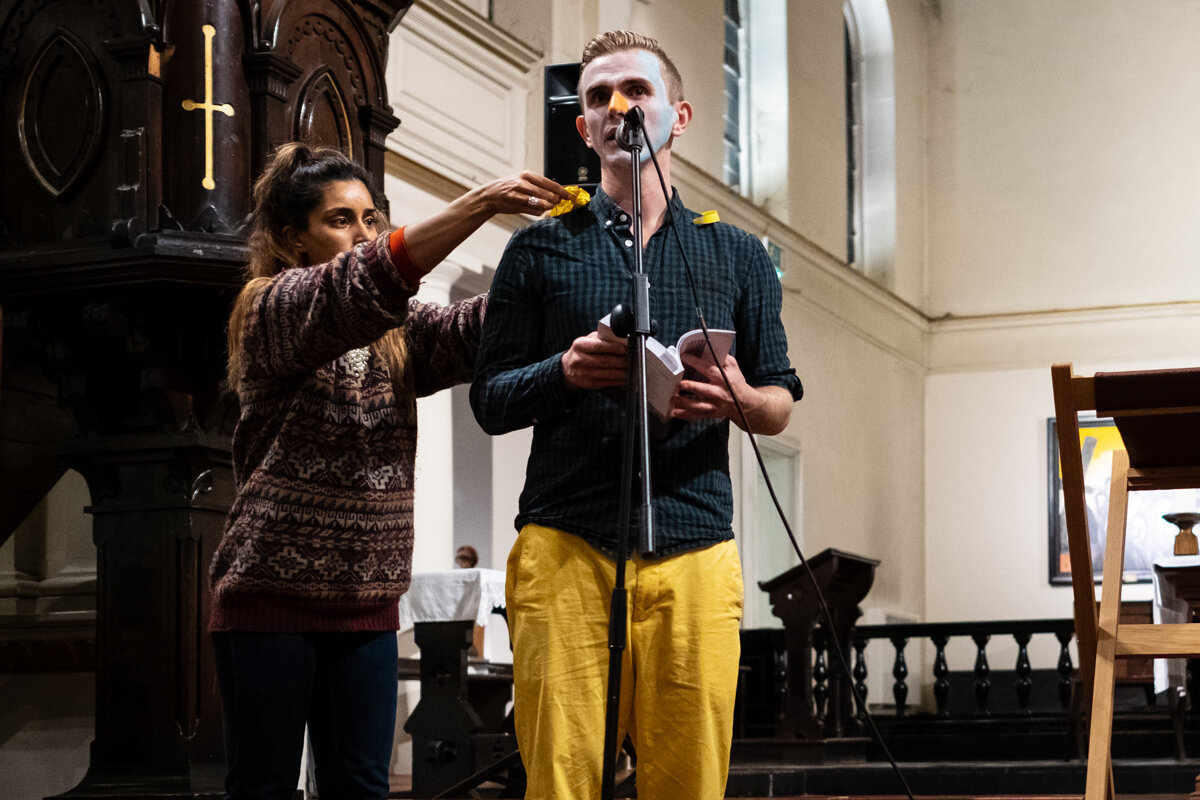Robert on the right
I hope this becomes a book. Robert Sheppard’s writing over the summer of 2020 on collaboration and poetry, in the UK, is timely, necessary and long overdue. I am biased as I’m featured and I obviously care about collaboration. But it is strange that so little has been written on the subject. Considering Robert’s standing as a poet and critic, and educator, it’s all the better he has done this work, eloquently, and with wit, and insight.
Robert has been a key influence upon the writing of multiple generations of poets in the UK. For my own part, he specifically influenced my sense of what place, space, biography could be within a complex poetry, he made me reconsider what poetics was and he allowed some light to be shone in the dark spaces where poets don’t make much and are proud of that - he has been prolific, for decades, and worked across the proper ways and means of poetry. I am one of very many who would say this kind of thing.
Finishing off his 14 part series on collaboration, he has concluded and provided a useful contents rundown. Posts include writings on my poetics of collaboration, the most comprehensive review of Nemeses, the second volume of my collaborations. In depth looks at my work on the page with Prue Chamberlain Bussey, and my work with Camilla Nelson, live and in print, with an appreciated nod to wrestling. I repatriate Robert’s concluding post here and enthuse that you should click through and read it all
Conclusion is here “This probably concludes my ‘Thoughts on Collaboration’. I think it is best that my remaining work on the theme is composed offline, for eventual publication as a critical article…. Only one final text to acknowledge, the extraordinary 500 page Poetic Interviews, edited and conducted by Aaron Kent, from Broken Sleep Books, 2019, in which Kent uses poems much as an interviewer uses questions - and various writers (I note SJ Fowler amongst them) reply with poems…. On a personal note, I am pleased to report that there are plans for Veer to republish both my collaborations with Bob Cobbing (which I talk about here ). That’s a good way to end this rambling strand….
The introductory part one, flags up the themes and surveys the territory
In part two, I talk about ways I've collaborated across media
Part three, I talk more about literary collaboration, but I also try to account for my own transformative practices (in 'The English Strain' project) that are not collaborations, not translations, but are transpositions.
Part four, on some of my literary collaborations, is here.
Part five is about SJ Fowler's 'Enemies' collaborative project, in general, and my part in them (with videos). It may be accessed https://robertsheppard.blogspot.com/2020/02/thoughts-on-collaboration-5-literary.html
Part six is on the literary collaborations in Twitters for a Lark; poetry of the European Union of Imaginary Authors (the EUOIA) here.
Part seven considers some of the ways female coauthors have operated and whether the term 'coauthors' isn't a better term… Here.
Part eight consists of two parts: my considerations of the past collaborations of Kelvin Corcoran and Alan Halsey here.
Part nine contains some thoughts on SJ Fowler’s Nemeses: Selected Collaborations of SJ Fowler, 2014-2019. HTVN Press, 2019 : here: https://robertsheppard.blogspot.com/2020/04/robert-sheppard-thoughts-on.html
Part 10 is an account of Fowler’s poetics of collaboration. Here: robertsheppard.blogspot.com/2020/04/robert-sheppard-thoughts-on_3.html
Part 11 is an account of Fowler's collaboration with Camilla Nelson (on the page)
https://robertsheppard.blogspot.com/2020/04/thoughts-on-collaboration-11-steven.htmlPart 12 continues to analyse Fowler's collaboration with Nelson, but it takes account of the extraordinary dynamics of its 'Enemies' performance (which was filmed), https://robertsheppard.blogspot.com/2020/04/thoughts-on-collaboration-12-steven.html




